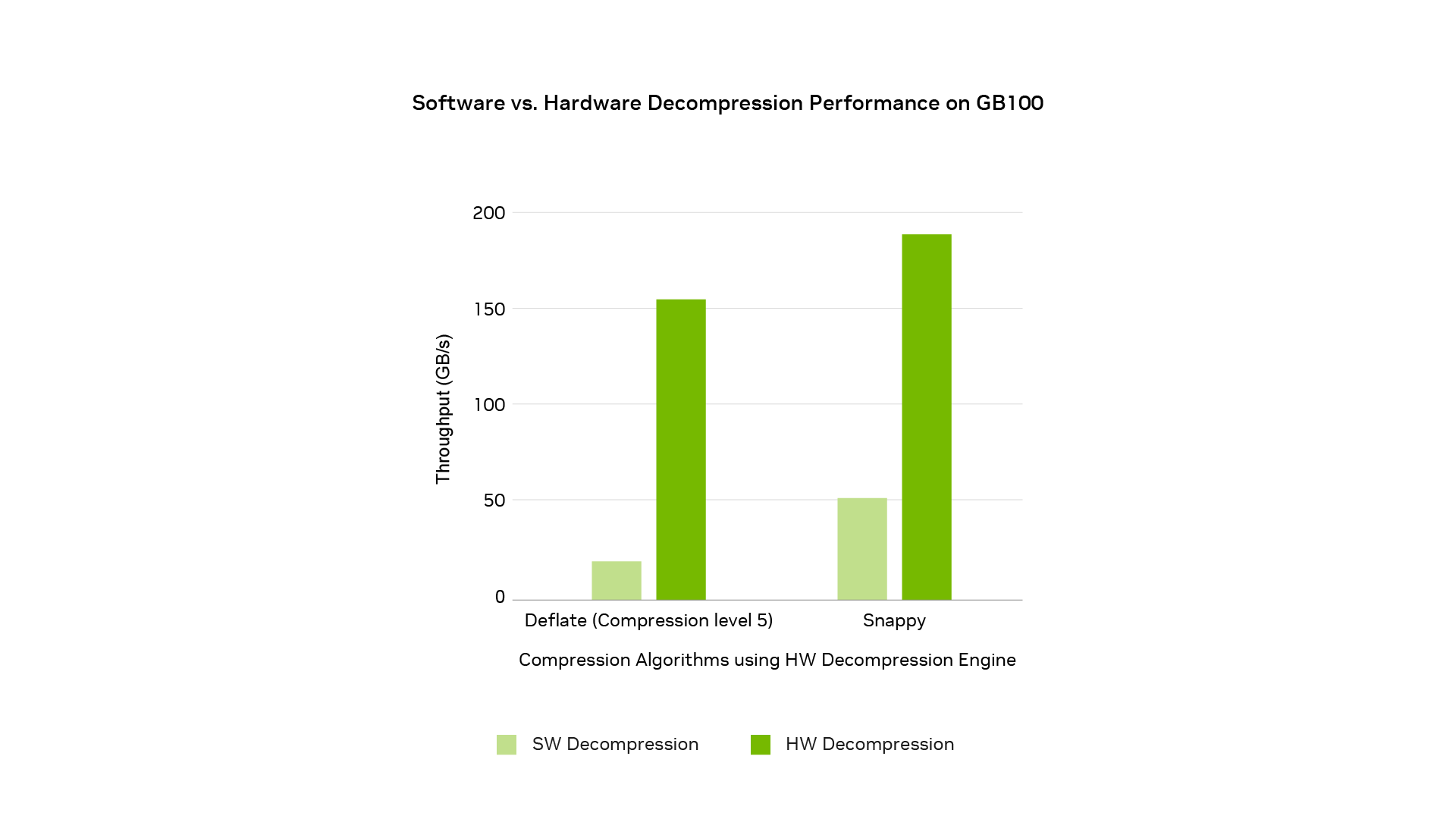NVIDIA nvCOMP
NVIDIA nvCOMP is a high-speed data compression and decompression library optimized for NVIDIA GPUs. Data compression is an essential part of applications for AI training, high-performance computing (HPC), data science, and analytics. As these applications grow in size and complexity, they demand highly optimized and performant compression and decompression capabilities.
Key Features
Blackwell Optimized Performance
Starting with version 4.2, nvCOMP is introducing support for the NVIDIA Blackwell platform. It leverages Blackwell’s dedicated hardware Decompression Engine (DE) to achieve up to 600 GB/s decompression throughput for standard formats. Additionally, Blackwell’s DE minimizes latency and improves efficiency by supporting fused copy-decompress operations and enabling overlap of decompress with compute.
Compression Format Support
nvCOMP supports a wide range of compression and decompression algorithms, including standard formats such as Snappy, ZSTD, Deflate, and LZ4. Additionally, it provides GPU-optimized formats like Bitcomp, GDeflate, gANS, and Cascaded, which are highly optimized for NVIDIA GPUs and available within a single library.
Python APIs Support
nvCOMP offers comprehensive Python APIs to provide streamlined interfaces for GPU-accelerated compression and decompression. This enables developers to experience a simplified integration and interoperability with frameworks such as PyTorch and TensorFlow.
nvCOMPDX Device APIs
nvCOMPDx provides device-side API extensions for performing compression and decompression inside your CUDA kernel.
Download nvCOMPDXnvCOMP Performance

nvCOMP Learning Library
Accelerating Lossless GPU Compression With New Flexible Interfaces in NVIDIA nvCOMP
Tech Blog
Get an overview of the nvCOMP library and how to integrate high-performance GPU-accelerated compression into your workflows—gain the tools to optimize memory bandwidth, reduce storage overhead, and accelerate data-intensive applications.
